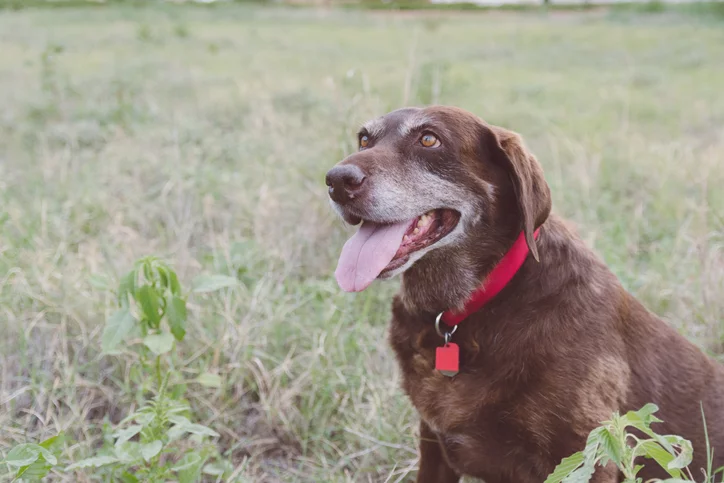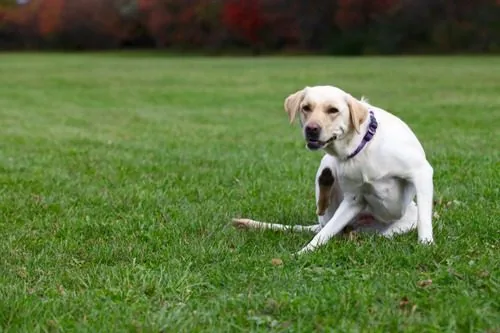Cloudy Eyes in Dogs: What Does it Mean?
Have you noticed your dog’s eyes starting to look cloudy? This is an unfortunately common issue in many dogs, and most of the time, it has to do with aging. But what does it mean beyond just a sign of your dog getting older?

6 Causes of Cloudy Eyes in Dogs
In this article, we’ll explain some of the most common reasons why your dog’s eyes might be getting cloudy. Read though this list so you’ll know more about what to ask your veterinarian the next time your dog has a scheduled appointment. Always work with a trusted vet when it comes to any concerns about your dog’s health and wellbeing.
6 common causes for your dog’s cloudy eyes include:
Nuclear Sclerosis
Nuclear sclerosis is the most common cause of cloudy eyes in dogs. This condition looks a lot like cataracts, but it isn’t quite the same. Cataracts look white and cause vision impairment, while nuclear sclerosis is blue and doesn’t cause much vision impairment.
Although nuclear sclerosis isn’t a problem on its own, it can sometimes lead to cataracts as well. Your vet will help you learn what to look for as your dog gets older and let you know which signs might mean your dog is developing cataracts along with his existing nuclear sclerosis.
Glaucoma
Glaucoma is a painful and serious condition caused by the buildup of pressure within and behind the eye. Glaucoma can either be genetic and come from one or both parents, or it can occur as a symptom along with cataracts and other problems. Some breeds are more prone to glaucoma than others, including cocker spaniels and shar-peis.
Your dog may need laser therapy to treat glaucoma. It is also possible that a dog may need to have the affected eye removed in very severe and untreatable cases. Your vet will talk with you about the possibilities for your dog’s glaucoma treatment.
Cataracts
As dogs get older, they can develop cataracts just like humans can. These are caused by the proteins in your dog’s eye moving closer together than they should. Although age is the most common cause, cataracts can also be cause by eye trauma or eye disease as well as diabetes. Some breeds, like the poodle and schnauzer, are more prone to cataracts than others.
Cataracts can cause your dog to lose all or most vision over time. There is no real treatment for cataracts in dogs, but most dogs can live out their golden years with no noticeable trouble from their cataracts.
Eye Ulcers
Eye ulcers can be caused by a variety of problems, but usually come from scratches or other injuries to the eyeball. They are infections within the eye that need medication to clear up. They tend to cause a dog’s eyes to be watery, red, and itchy, and they may cause pain as well.
Although eye ulcers can be serious if left untreated, they are easy to treat if you get your dog to the vet in time. Take him in as soon as he starts to show signs of pain or discharge in his eye.
Dry Eye
Dogs can suffer from dry eye the same as humans. Immune system problems lead to the majority of cases of dry eye in dogs, but some breeds are more prone to this condition than others—especially those with a “bug-eyed” appearance. Along with a cloudy appearance in the eyes, dogs with dry eye may also have redness, pain, itching, and watery eyes.
It is possible to give dogs eye drops and ointments for dry eye treatment just as it is for humans. However, you should never use human eye drops on a dog (or vice-versa!), as this could cause more damage in the long run.
Corneal Dystrophy
This condition is more common in some dog breeds than others. It is also genetic, so if a parent dog has it, the puppies likely will too. Corneal dystrophy can affect different parts of the eye depending on the dog and genetics involved.
This problem does not cause vision issues for dogs, but it can lead to ulcers which require antibiotic treatments to cure. The corneal dystrophy itself, however, cannot be cured and can only be managed throughout your dog’s life.
Seek Veterinary Care for Your Dog’s Cloudy Eyes
As you can see, the vast majority of causes of cloudiness in the eyes comes from aging. Dogs tend to get cloudy eyes as they get older, and this is as normal for them as it is for many humans. However, there are some steps you can take to help ease your dog’s aging and make his cloudy eyes easier on him at the same time.
By working with your vet and formulating a plan together, you and your vet can provide the best quality care for your dog as he gets older. As always, ask your vet for more specifics about your individual dog, too.
At The Village Vets, we want your dog to live a long and comfortable life with you. Even if your dog’s cloudy eyes are due to aging, we’ll work with you to develop the best care plan possible so your pet can live their golden years as comfortable and happy as possible.
Recent Posts
About The Village Vets
The Village Vets is a network of animal hospitals based in Atlanta, GA and the surrounding area. We offer honest, excellent service to our clients in a comfortable, friendly atmosphere. To learn more about our locations and how we can better serve you and your pet, click the button below.
Share This Post
Recent Posts
About The Village Vets
The Village Vets is a network of animal hospitals based in Atlanta, GA and the surrounding area. We offer honest, excellent service to our clients in a comfortable, friendly atmosphere. To learn more about our locations and how we can better serve you and your pet, click the button below.



